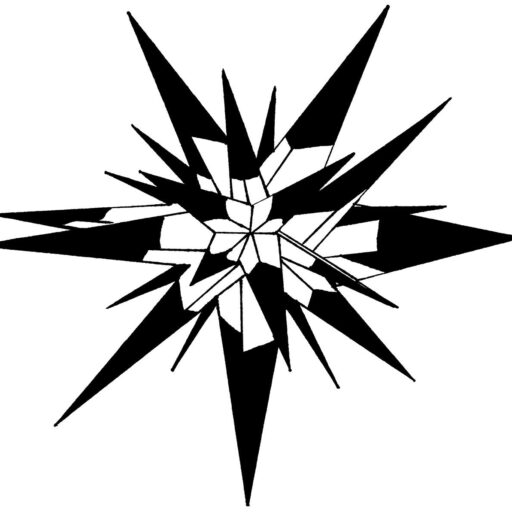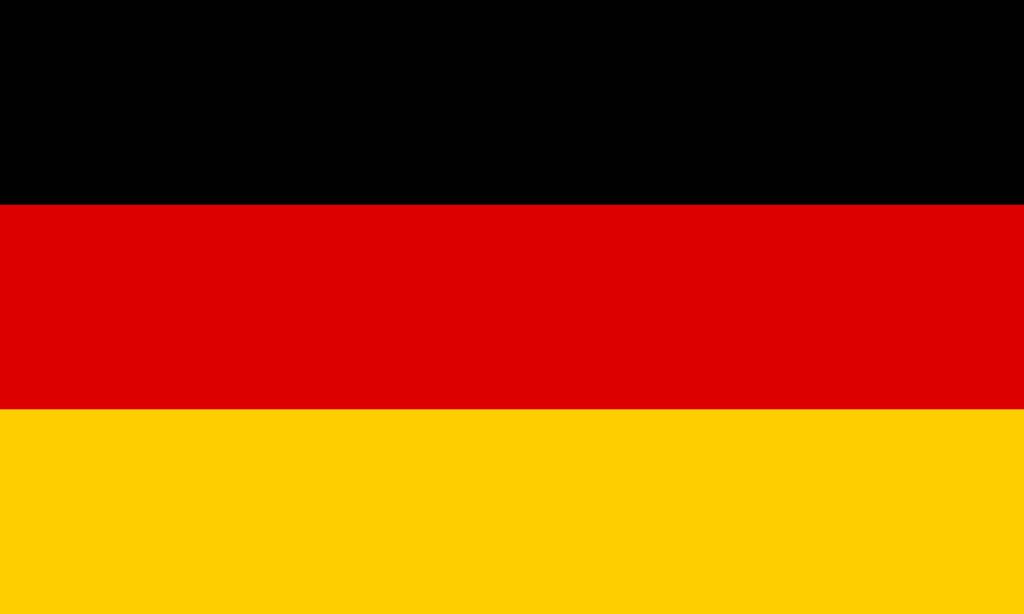Upcoming
Reading (05.06.2026, Prague): Yearbook(s) of PG*
Conference (06.06.2026, Prague): “Viel Neues über das Neue”
Talks & Open discussion (30.07.-02.08.2026, Bavaria): tba
Conference (Autumn 2026, Vienna): “100 Jahre Laienanalyse. Ein Freud-Jubiläum”
Exhibition & theoretical side-program (2026): “no title | unfinished w_rks”
Past
Conference (19.-21.11.2025, Prague): “»And so on…« – How to make sense of Slavoj Žižek”
Upcoming Events
Reading: Yearbook(s) of PG*
Reading
05. June 2026
Prague (tba)
Right before the Conference “Viel Neues über das Neue” in Prague, we will again fill one of Prague’s wonderful bars with intellectual life by reading from our Yearbooks – especially presenting the third volume, published in 2025. More information to be announced soon!
Viel Neues über das Neue
Conference: “Viel Neues über das Neue”
06. June 2026
Prague (tba)
The continuation of last year’s conference “Nichts Neues über das Neue? Perspektiven aus Philosophie, Psychoanalyse und Kulturwissenschaften” will happen on the 6. of June in Prague. More information to be a announced soon!
Talks and discussion (tba)
Talks and open discussion
30. July – 02. August 2026
Festival The Farm, Bavaria
In a continuation of our talks there in 2024 we will again come to the beautiful festival The Farm in Bavaria in 2026. More information to be announced soon!
100 Jahre Laienanalyse
Conference: “100 Jahre Laienanalyse. Ein Freud-Jubiläum”
Autumn 2026 (tba)
Vienna
We will be part of the conference “100 Jahre Laienanalyse. Ein Freud-Jubiläum” honoring Freud’s work “Die Frage der Laienanalyse” (1926) in Vienna. More information to be announced soon!
no title | unfinished w_rks
Touring exhibition with theoretical side-program
2026 (tba)
Kiel/Berlin/Prague/Vienna
Today we are bombarded by an overwhelming imperative to „make the most out of ourselves“, to be creative and joyful, living life to the fullest. This has created anything but a society of free and creative individuals thriving in their passions and projects. Instead the feeling of (being a) failure is looming over omnipresent complexes of shame, guilt and anxiety: Impostor syndrome, FOMO, auto-aggression, depression and burnout are just a few of the battles in the war that the Western, middle-class „achievement-subject“ (Byung-Chul Han) wages against her- or himself. Especially in art and science one of the battlegrounds of this war is centered around finishing – and the failure to do so.
Even if we had all the leisure we’d need, the act of finishing would be problematic – negativity will always be around. This situation opens a range of difficult questions: When and why do we consider a work (of art) to be finished? If it is supposed to be finished, it must have started – when and how? And what exactly is the connection between „finishing“ and „achieving something“? What could be an answer to the imperatives of achievement and creativity? And most important: Why should only finished works be worthy (of being exhibited)?
We are done with feeling insufficient – we are convinced that there is a new pride to learn: the pride of failing! We are embracing the negativity that comes with it. We are therefore opening up a space of art and philosophy to meet, to discuss and to present shards of all sorts of unfinished projects.
Concept. Unfinished artworks shall be exhibited alongside a philosophical program of talks and performances. Both art and philosophy are means to tackle the problems indicated and can greatly benefit from a dialogue, overstepping their usual disciplinary boundaries. This exhibition will be traveling four cities in 2026, offering each a short period (1-3 weeks) of dense program: Prague, Berlin, Vienna and Kiel.
The artworks will be collected not via an open call – to be able to keep up with the task of curating – but via the artistic and philosophical communities we are part of. The curation will be done by a group of Prager Gruppe* members and invited artists, where we do acknowledge the need to have some background in the history and theory of art. The exhibition space shall be divided into the three stages of being unfinished: First, the work that never even started, the painting that was never painted or the book that was never written, second, the work that was dropped at some point, never to be taken up again, and third, the work that never got the finetuning that would allow one to consider it finished – ready to be presented to the gaze of the Other. There is no restriction to the form or content of the artworks.
The theoretical program consists at least of three parts, to be held on different days: First, an introductory, performative talk on the impostor syndrome, second, an interactive performance of painting, tackling the question of “letting something be” (finished), and third, closing talks on the unfinished from the perspective of social and political philosophy, as well as art theory with an open space for discussing and reflecting the experience of the exhibition that will come to its end on that evening. The program will be filled with ideas from both the philosophical and art-theoretic communities we are part of and is still open for extension.
Past Events
»And so on…« – How to make sense of Slavoj Žižek
Conference: »And so on…« – How to make sense of Slavoj Žižek
19. – 21. November 2025
Goethe Institute Prague, Masarykovo nábřeží 224/32, Prague
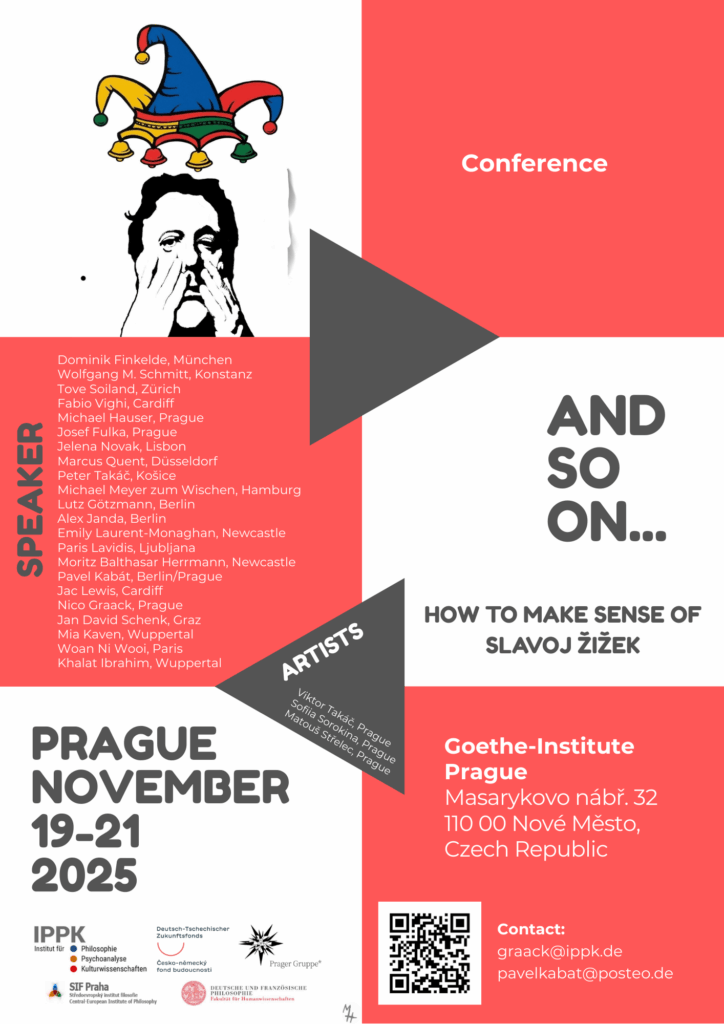
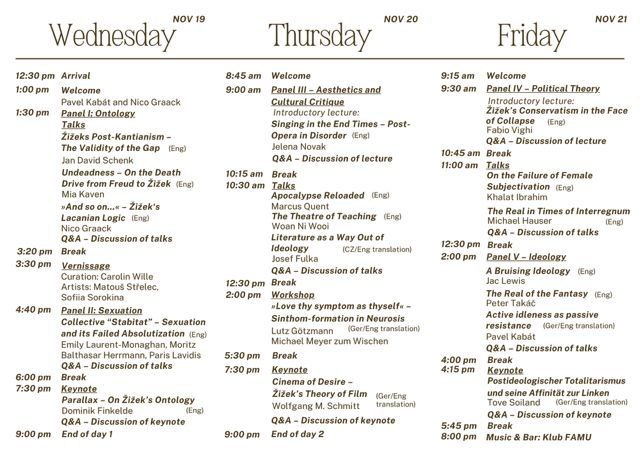
The conference just came to an end and we are very happy, honored even by how it turned out to be: A lively intellectual space, filled by exciting talks and even more exciting social encounters. We will write a report as soon as the dust settled and publish it here. Thanks to everyone who was part of this!
Slavoj Žižek is undisputedly one of the most widely received philosophers of our time. In countless journalistic articles and theoretical treatises, he has been intervening in contemporary philosophical and political events for over forty years now. He is perhaps the first intellectual to become a viral internet phenomenon, the centre of a maelstrom of memes and clips, an intellectual spectacle.
The so-called rock star’ or “clown” of philosophy may enjoy a large audience among a popular scientific community, he may have founded his own current, a new discourse on ‘post-Oedipal society’ and creative, current readings of Hegel and Lacan together with his colleagues Alenka Zupančič and Mladen Dolar within the framework of the Ljubljana-Lacan School, but within academia there is only a disproportionately small niche for Žižek research.
We want to address this with a conference on his work and offer a platform in particular for young philosophers who are active in the field between classical German philosophy, Lacanian psychoanalysis and Marxist politics, which was largely founded by Žižek. We work together with the Charles University in Prague, the Central European Institute of Philosophy (SIF) and the Institut für Philosophie, Psychoanalyse, Kulturwissenschaften (IPPK).
In five panels, we will discuss the questions raised by Žižek in ontology, sexuality, aesthetics, critique of ideology and political theory, criticise his work and take it further. In addition to lectures by philosophers and intellectuals from outside and inside academia, the clinical dimension will also be represented in a workshop with practising psychoanalysts. The artistic exploration of Žižek’s work awaits us in the form of an exhibition of local artists in the foyer of the Art Nouveau classic that houses the Goethe-Institut Prague. As the geographical centre of Europe and the intellectual interface between East and West, Prague offers the ideal location. Languages will be English, German and Czech, with translation into English.
Everyone interested is welcome! Please register via e-mail.
Contact: graack [ettt] ippk [d0t] de
Design: Markus E. Hodec
Nichts Neues über das Neue?
Conference: Nichts Neues über das Neue. Perspektiven aus Philosophie, Psychoanalyse und Kulturwissenschaften
07. June 2025
Conference center, Husová 4, Prague
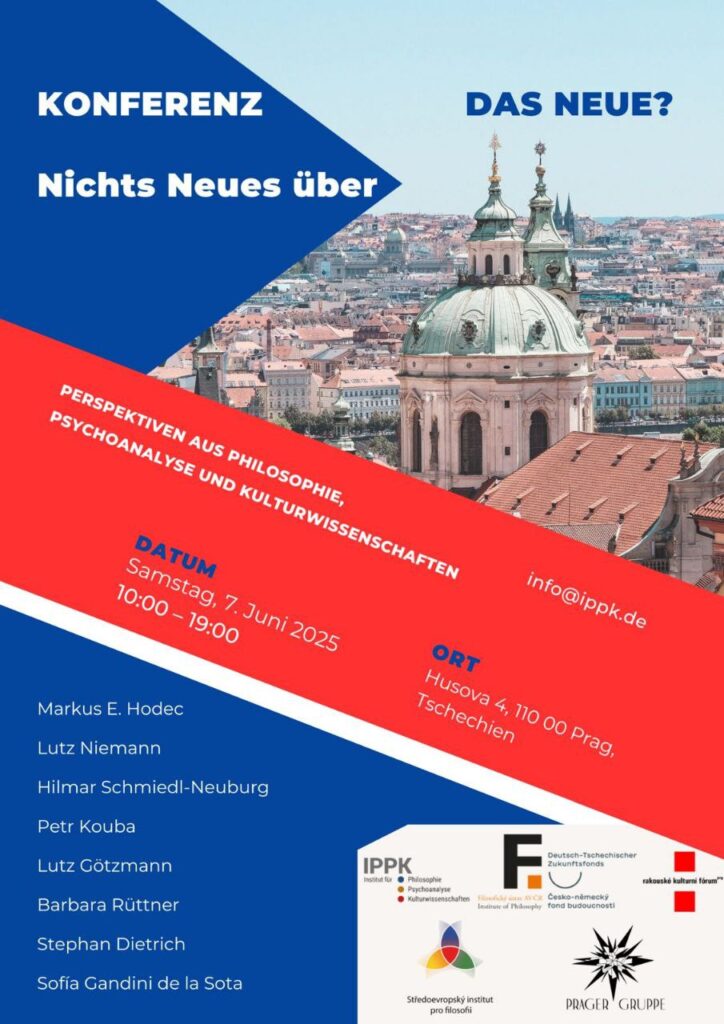
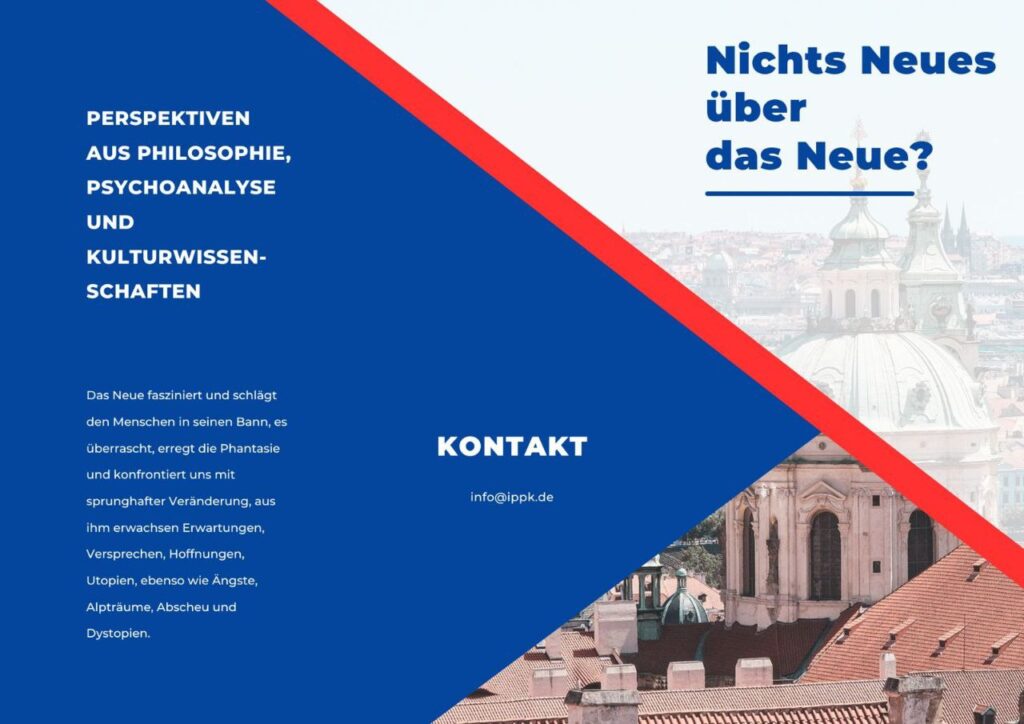
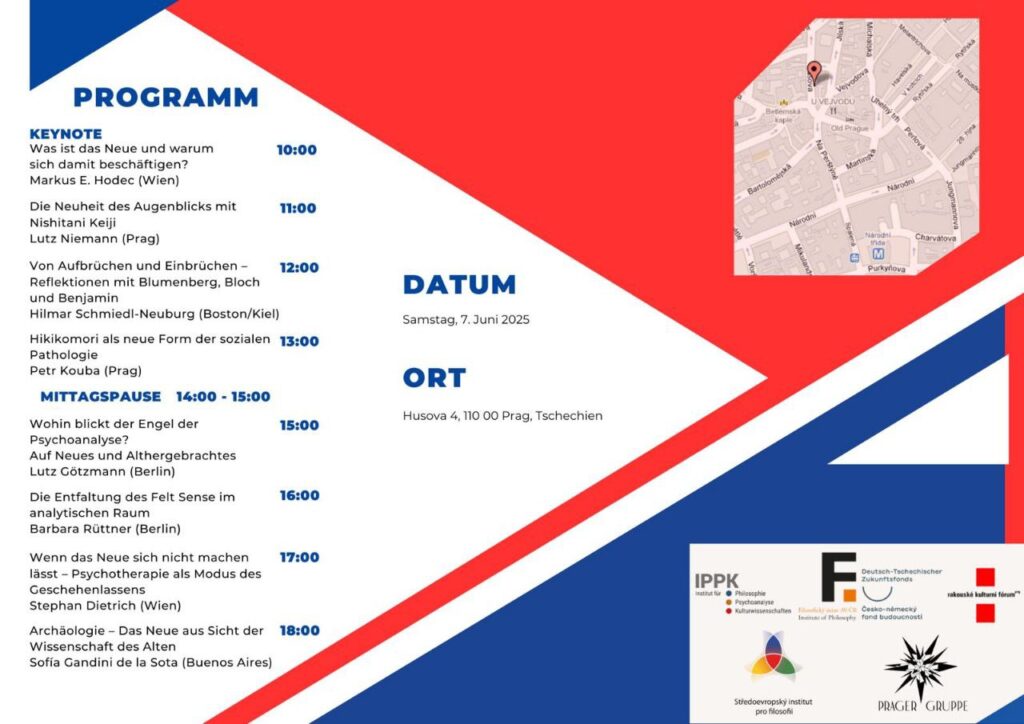
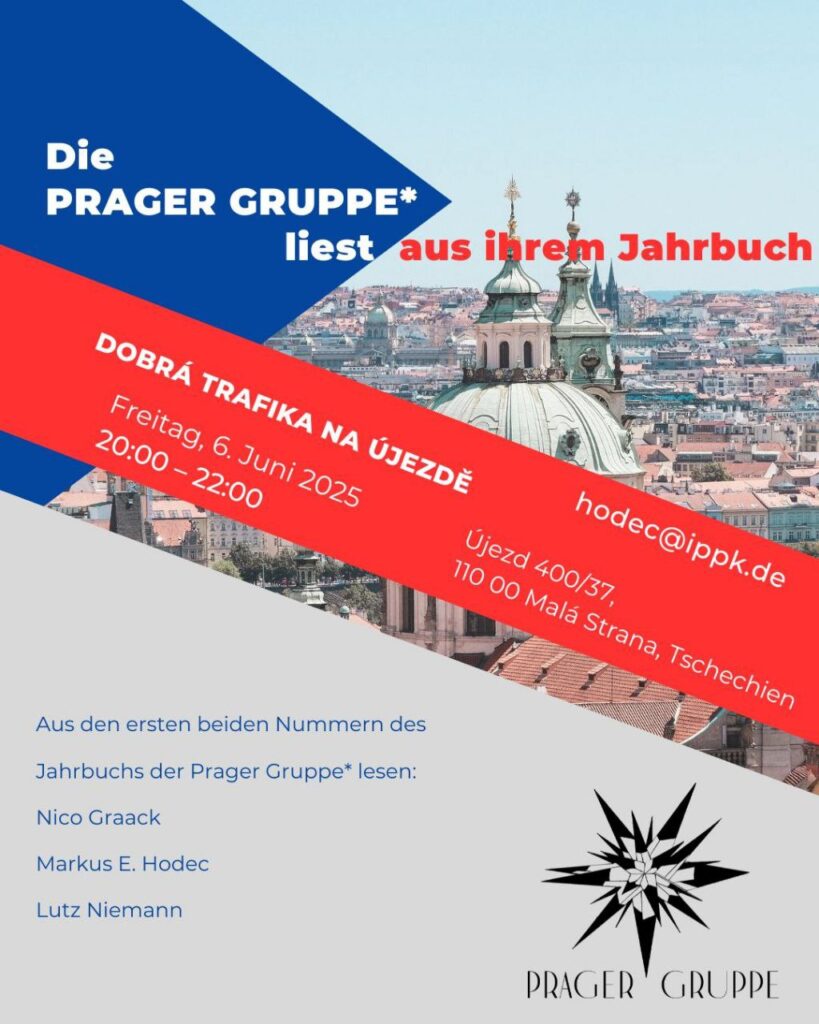
The new fascinates and captivates people, it surprises, excites the imagination and confronts us with sudden change, giving rise to expectations, promises, hopes, utopias, as well as fears, nightmares, revulsion and dystopias.
We encounter it in technology as well as in society, in art as well as in science.
From this focus, fundamental thoughts and works from philosophy, psychoanalysis and cultural studies can be re-read and re-thought.
By emphasising the specific characteristics of the new, a whole field of new possibilities opens up in the consideration and further development of Hegel, Adorno, Kant, Freud, Husserl, Lacan, Bergson, Arendt and also more recent thinkers such as Humberto Maturana, Slavoj Žižek, Byung-Chul Han and many more.
The conference ‘Nothing new about the new’ was dedicated to these and other topics. It took place on the 7th of June 2025 at the Academic Conference Centre of the Czech Academy of Sciences in Prague.
After the opening by PD Dr Hilmar Schmiedl-Neuburg (IPPK) and Dr Petr Kouba (FLÚ AV ČR), the conference began with the keynote lecture ‘What is the new and why deal with it’ by Dr Markus E. Hodec. In it, Hodec presented his project on the philosophical investigation of the phenomenon of the new. The lecture focussed on the conceptual work that must precede any examination of the new. The lecture refers to the recently published book “Das Neue. Prolegomena zur Känologie” (published by Königshausen & Neumann).
Following this, Mgr Lutz Niemann presented “Die Neuheit des Augenblicks mit Nishitani Keiji”, an intercultural perspective with a special focus on the time of the new. PD Dr Hilmar Schmiedl-Neuburg also used the differentiation of the new into neo-new and kaino-new introduced by Hodec in ‘Von Aufbrüchen und Einbrüchen – Reflektionen mit Blumenberg, Bloch und Benjamin’ to trace the phenomenon from a critical and at times messianic perspective. Dr Petr Kouba concluded the philosophical morning of the conference with his lecture “Hikikomori als neue Form der sozialen Pathologie” and gave a preview of the following contributions.
The afternoon was dedicated to psychoanalysis, psychotherapy and cultural studies. Prof Dr Lutz Götzmann kicked things off with a psychoanalytically oriented contribution on Paul Klee’s painting Angelus Novus “Wohin blickt der Engel der Psychoanalyse? Auf Neues und Althergebrachtes”. The conference continued with “Die Entfaltung des Felt Sense im analytischen Raum”, a lecture by Prof. Dr Barbara Rüttner that was also psychoanalytically orientated and included a focussing exercise. This was followed by Stephan Dietrich’s “Wenn das Neue sich nicht machen lasst – Psychotherapie als Modus des Geschehenlassens”, in which he posed the central question for Daseinsanalyse of being in the light of the confrontation with the new. Profesora (EMySCA) Sofía Gandini de la Sota concluded the conference with “Archäologie – Das Neue aus Sicht der Wissenschaft des Alten”. In it, she took up the central categories of the new as neos-new and kainos-new – with a particular focus on their opposing conceptual difference in the old as archaeos-old and palaeo-old.
After the organisational conclusion of the conference by Petr Kouba and Hilmar Schmiedl-Neuburg, Markus E. Hodec spoke the closing words of this extremely successful conference. Last Saturday, the new was given a well-deserved place in scientific research and therapeutic practice. A continuation of the conference is planned for 2026.
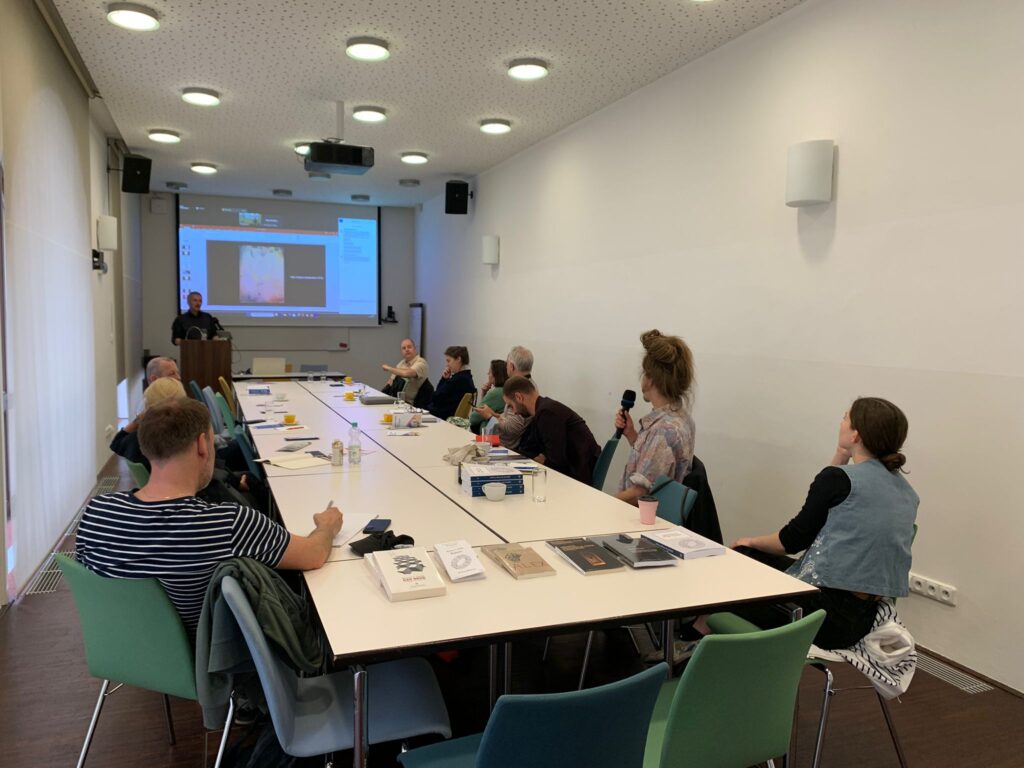
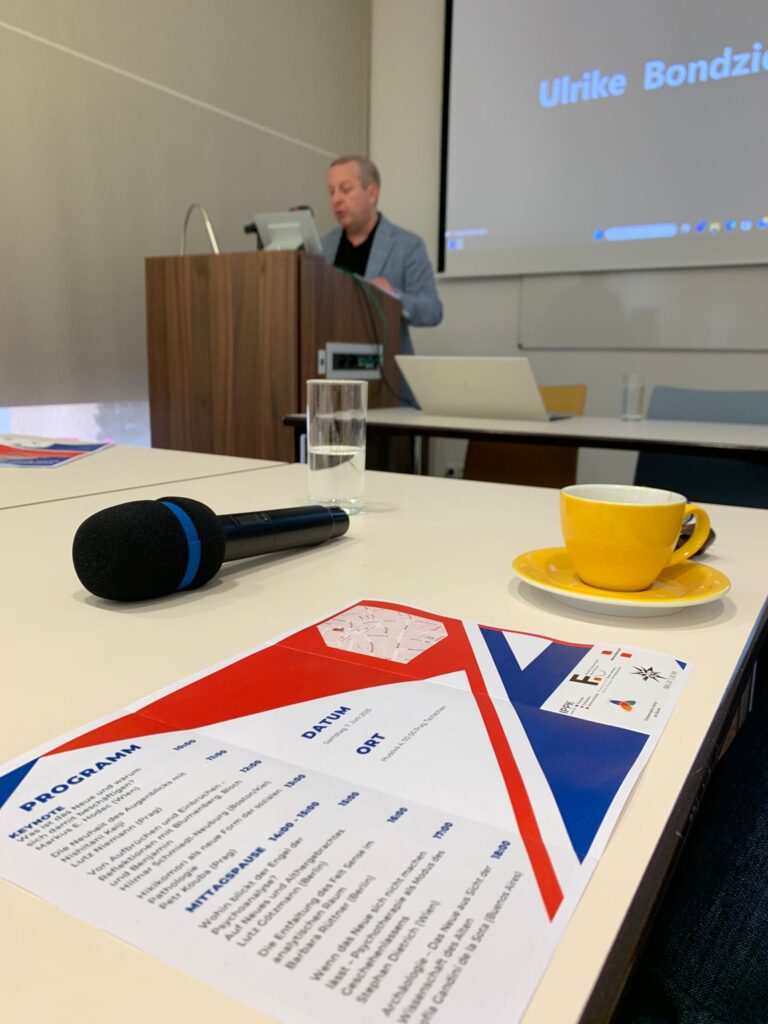
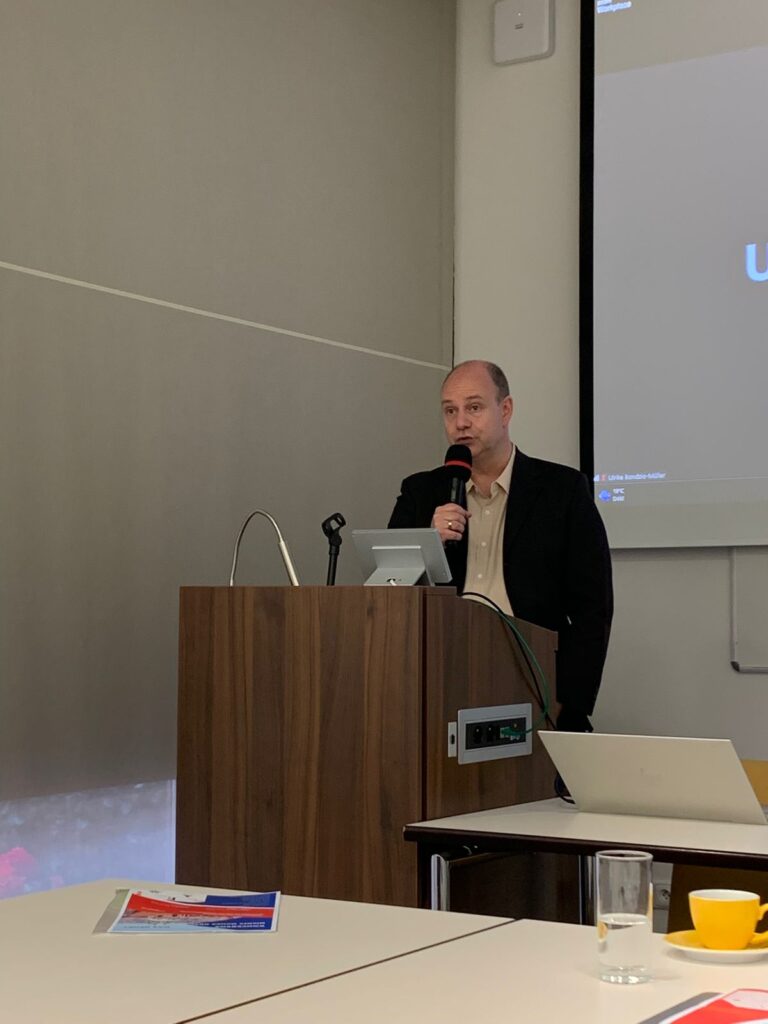
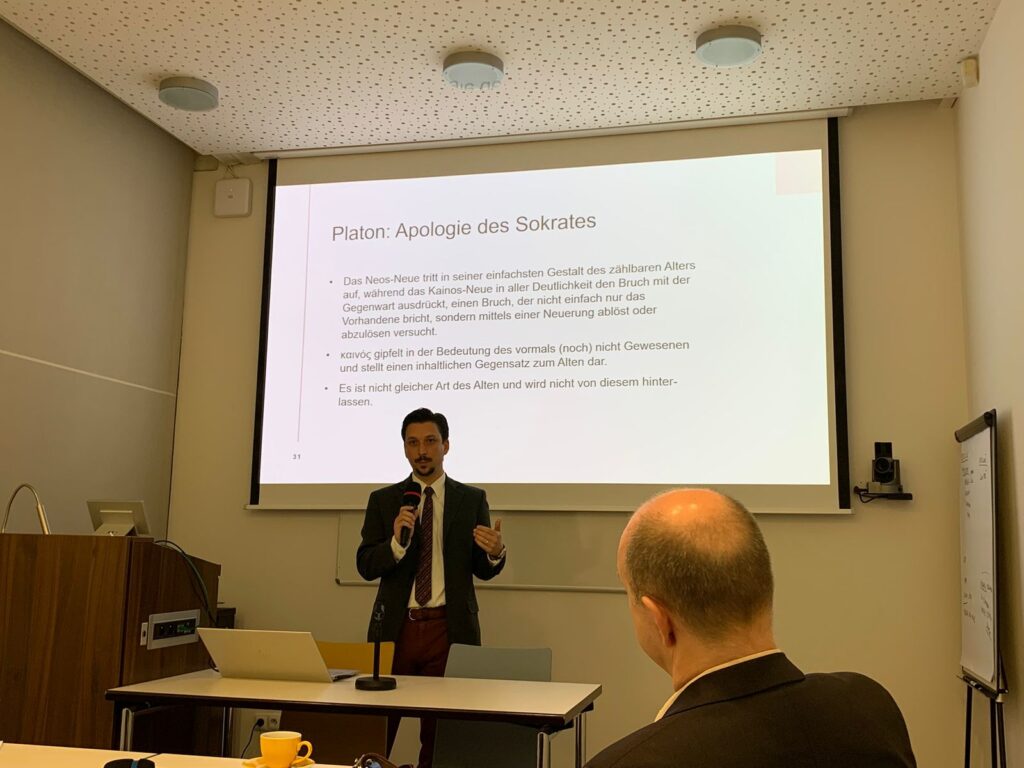
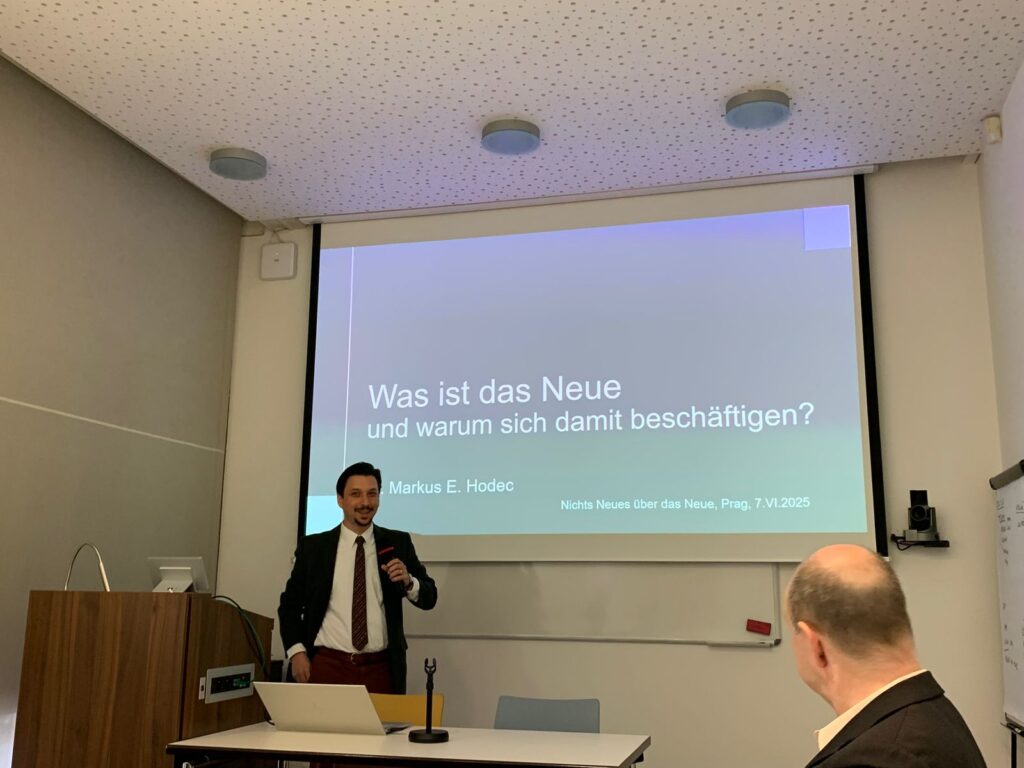
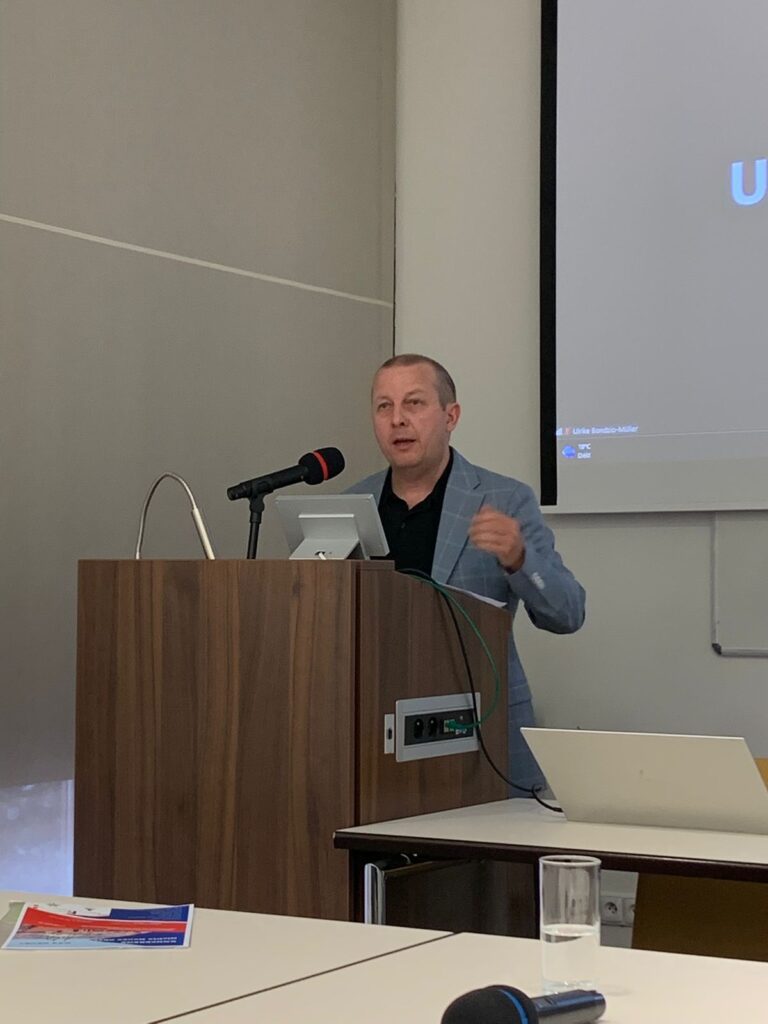
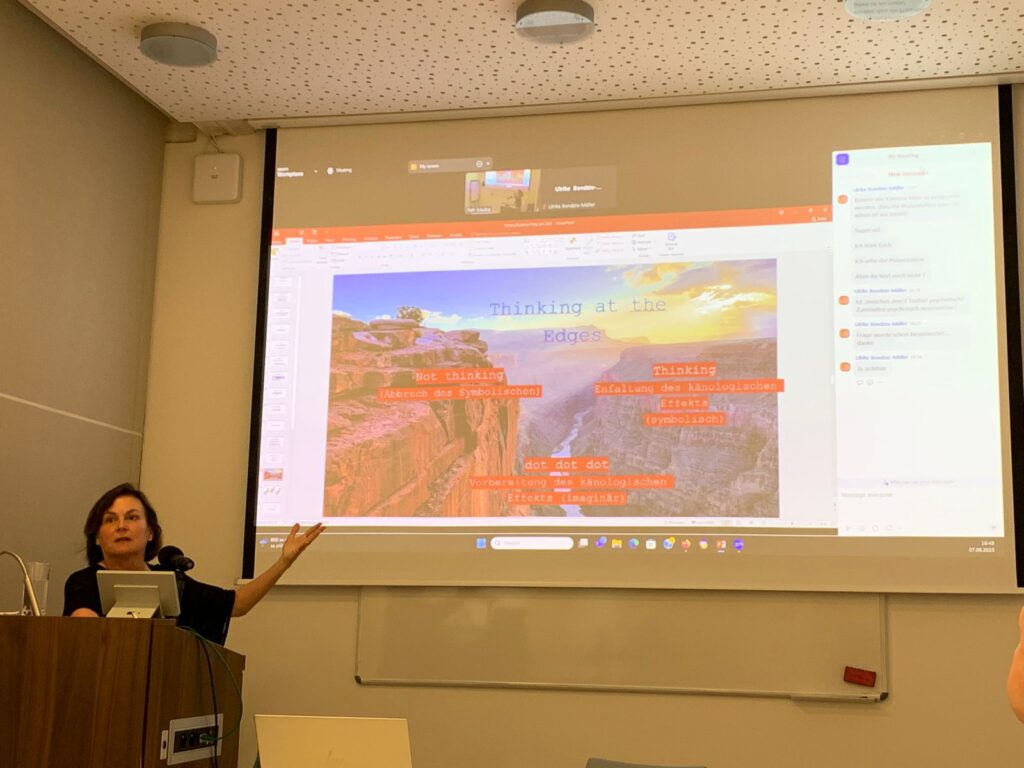
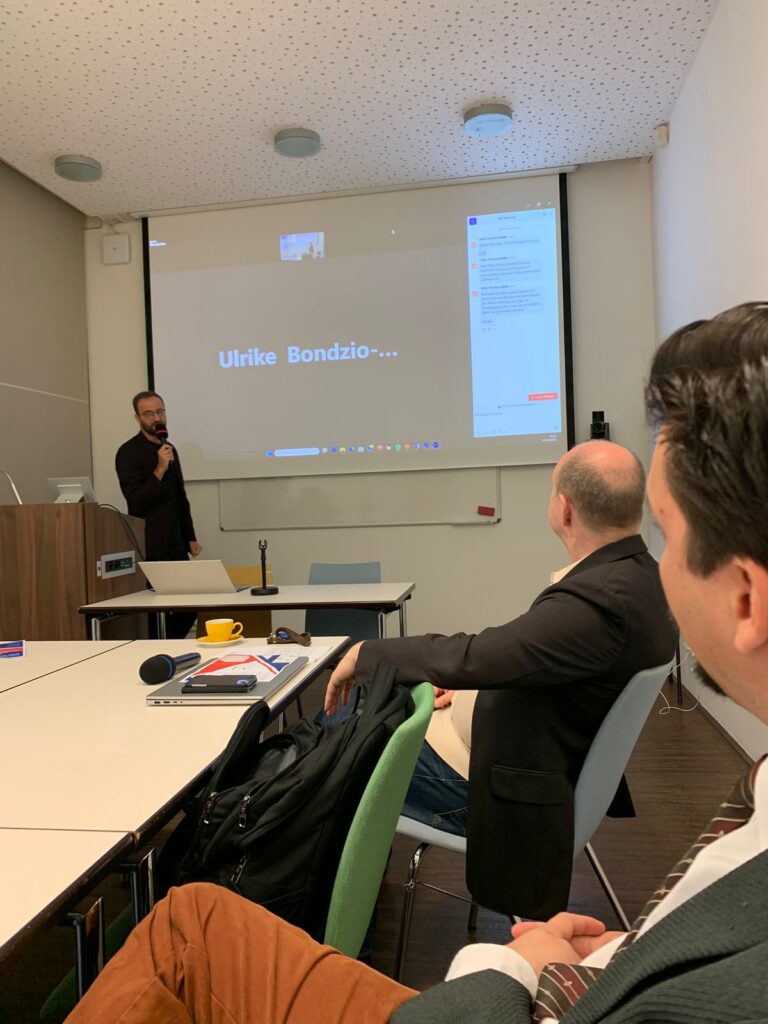
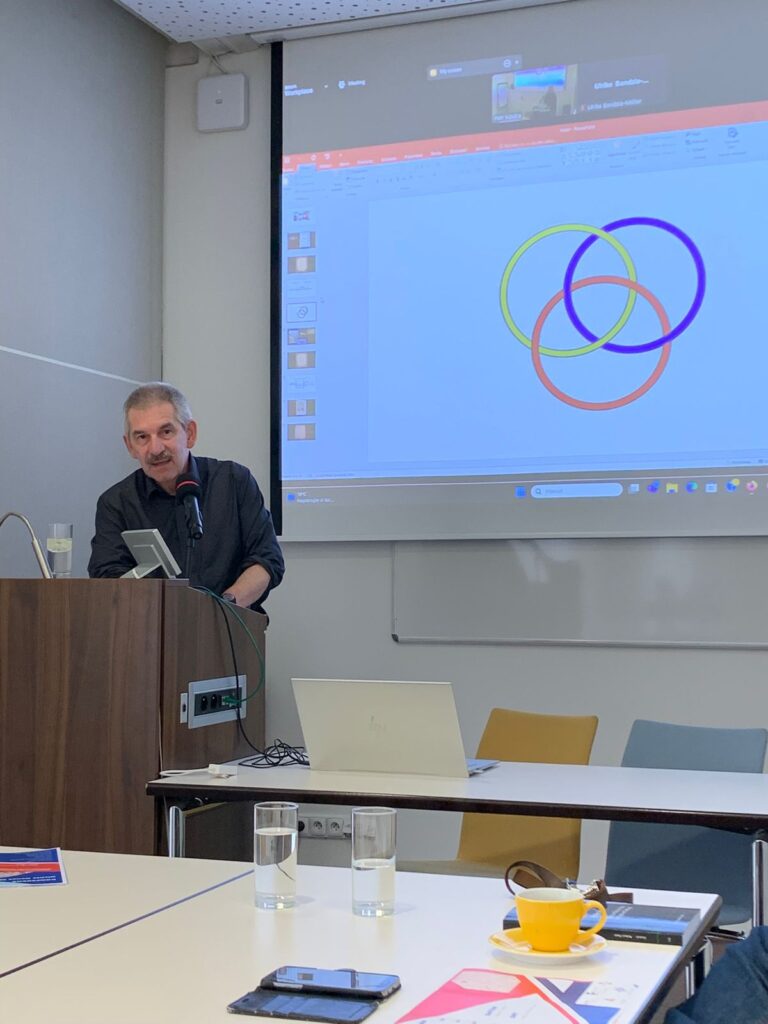
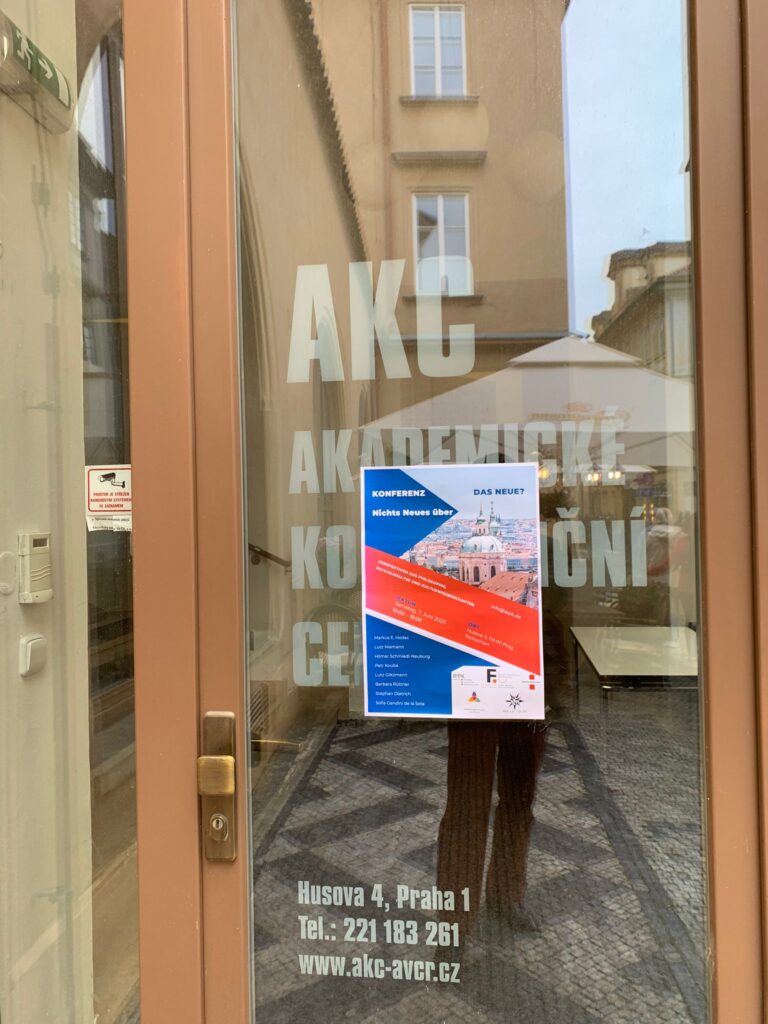
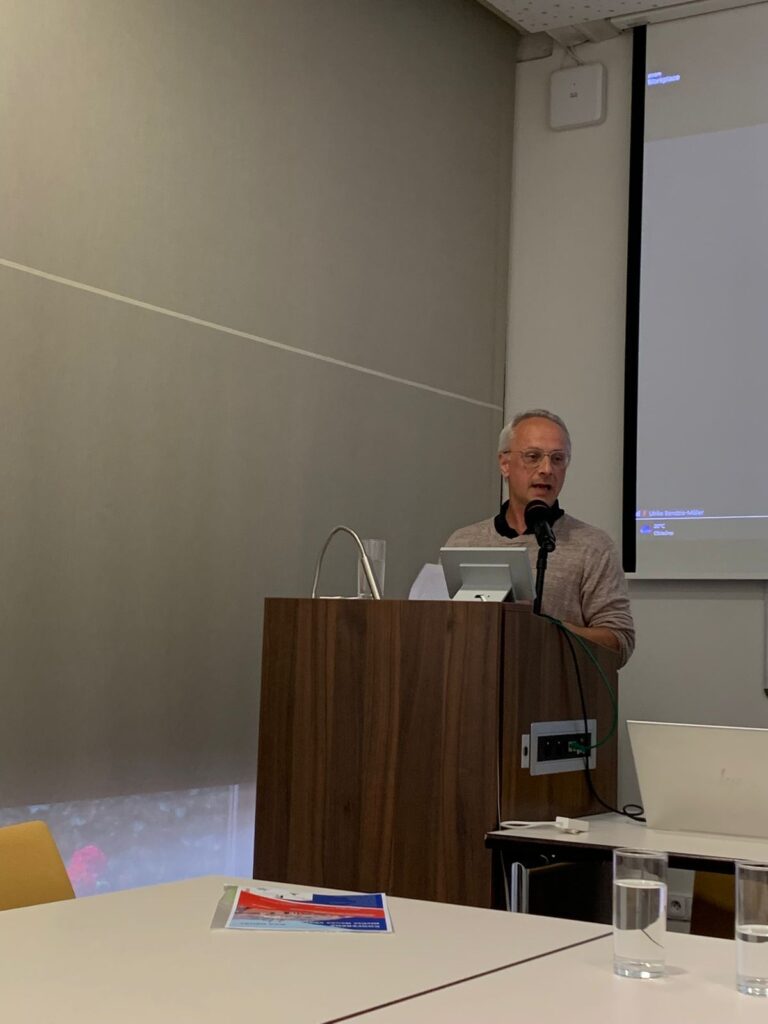
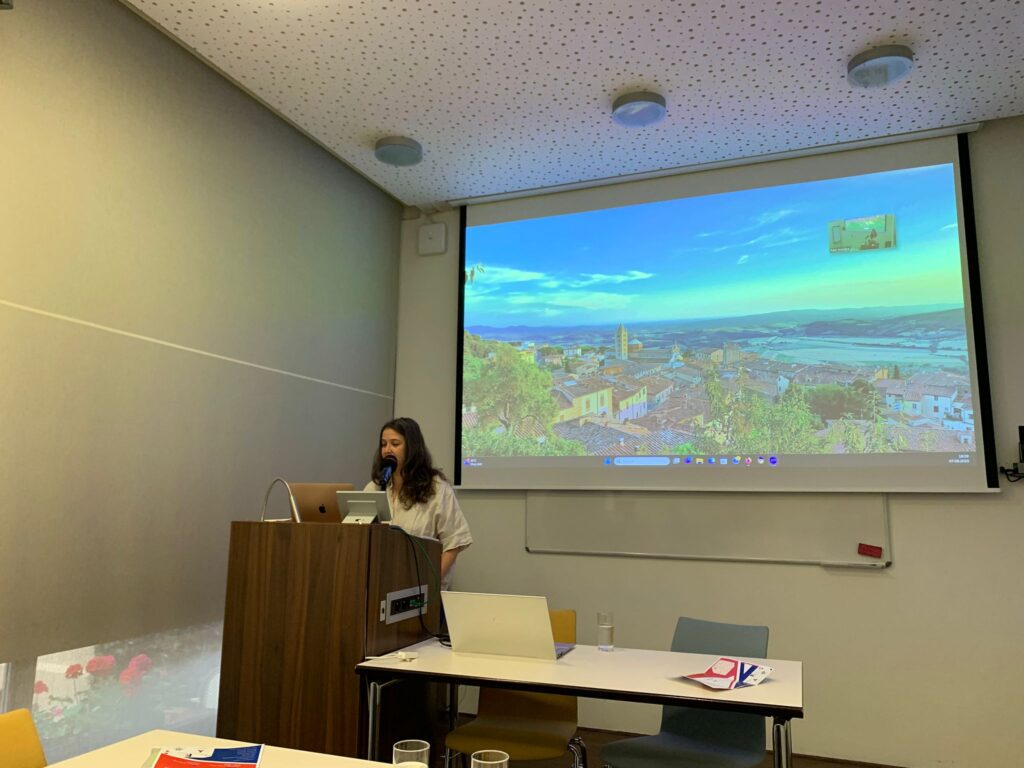
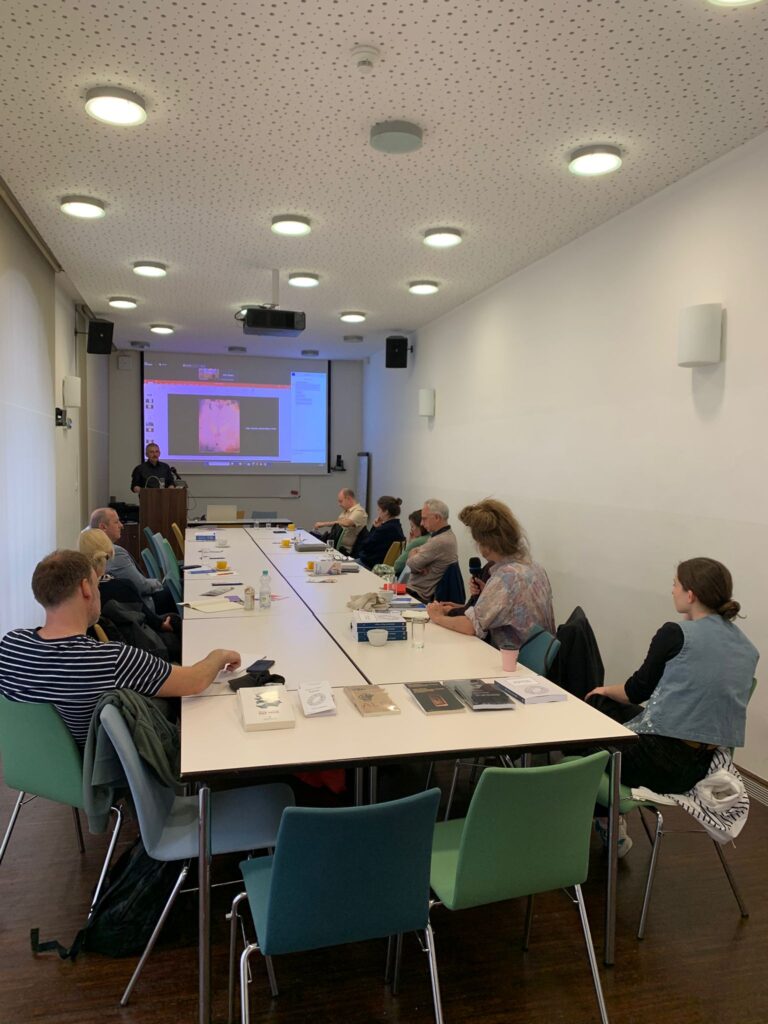
Are we serious? Humor in debates of the 21st century
Talks and open discussion
02. August 2024
Festival The Farm, Bavaria
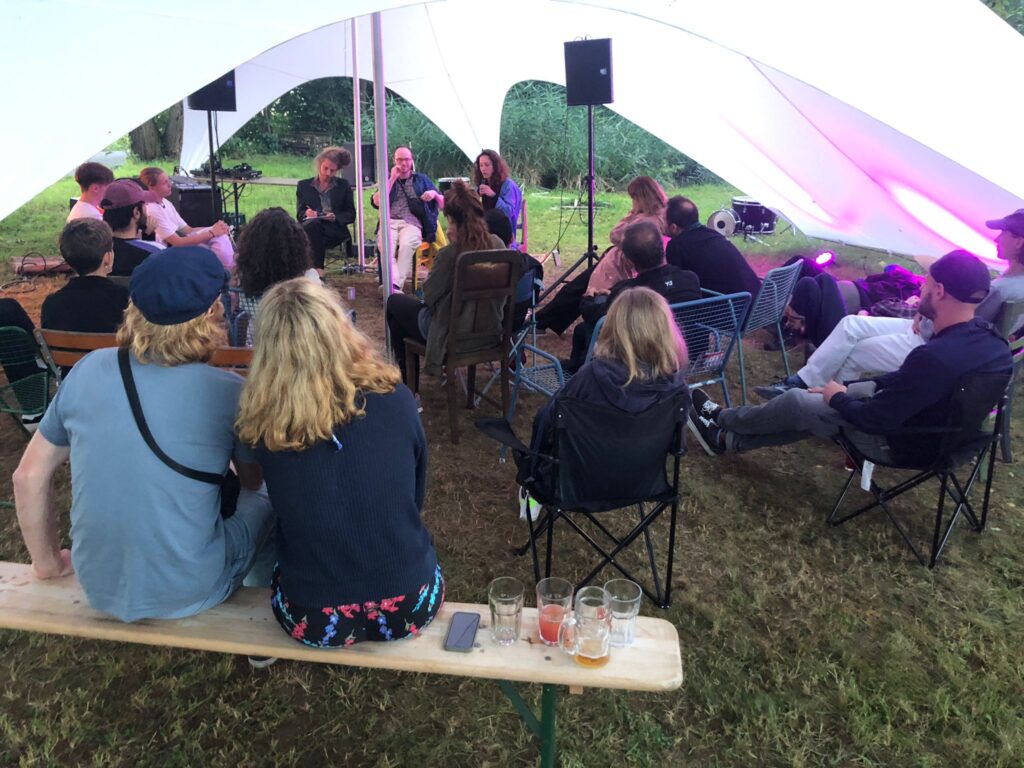
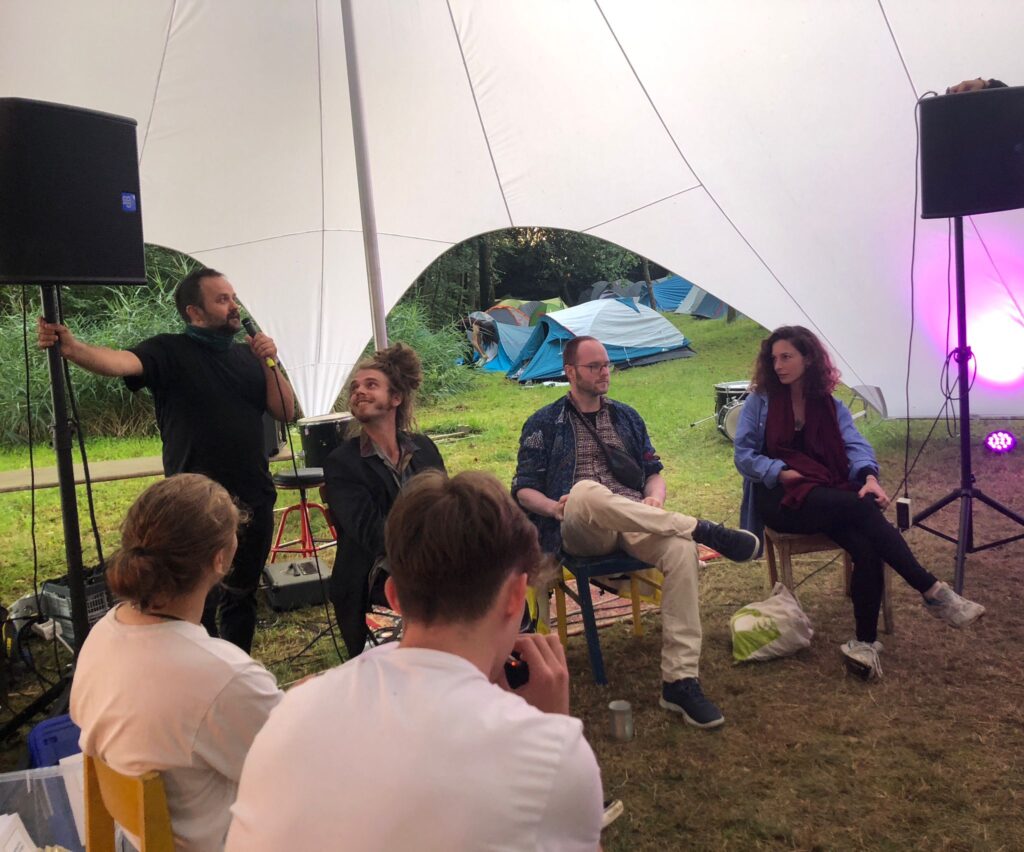
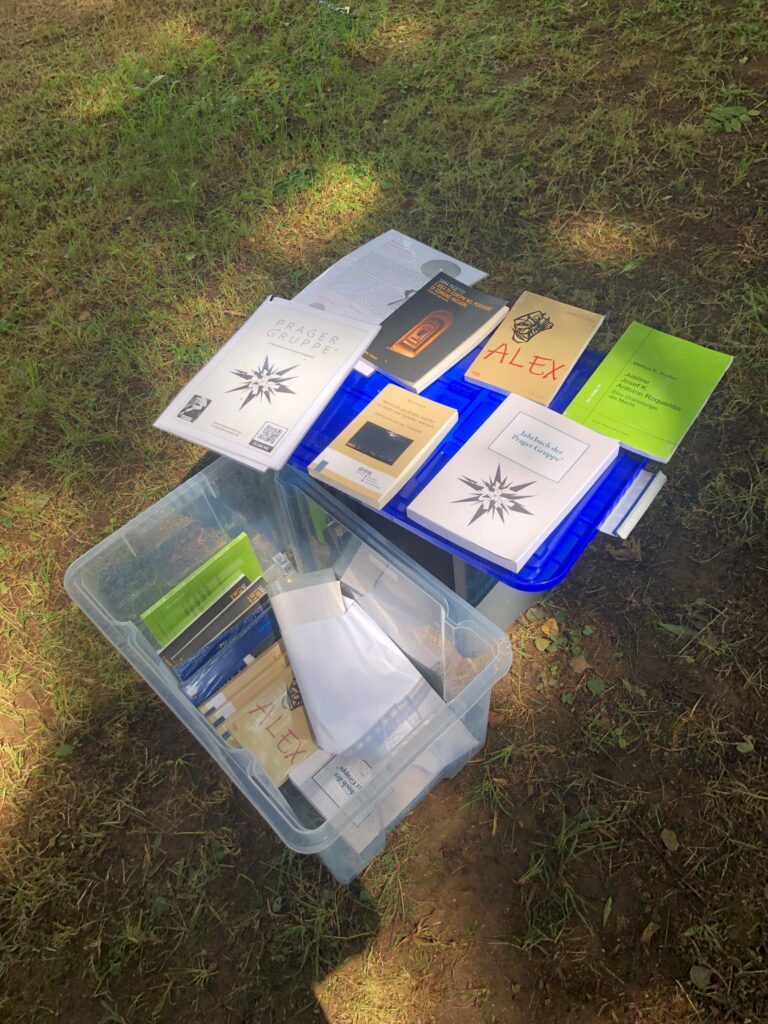
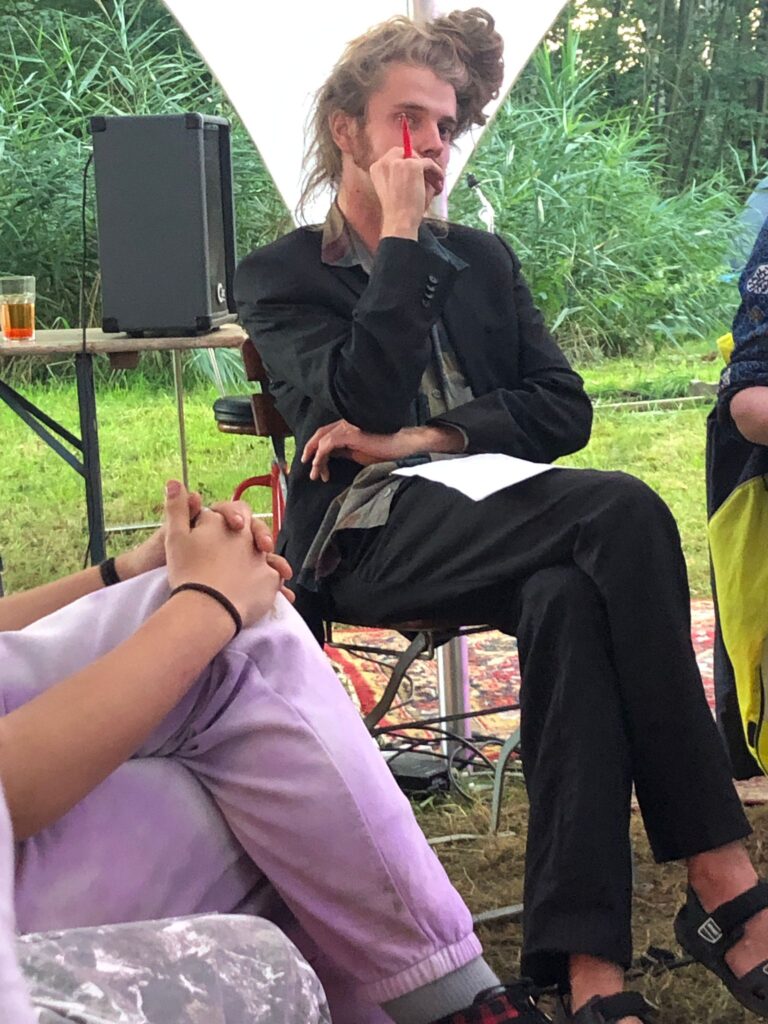
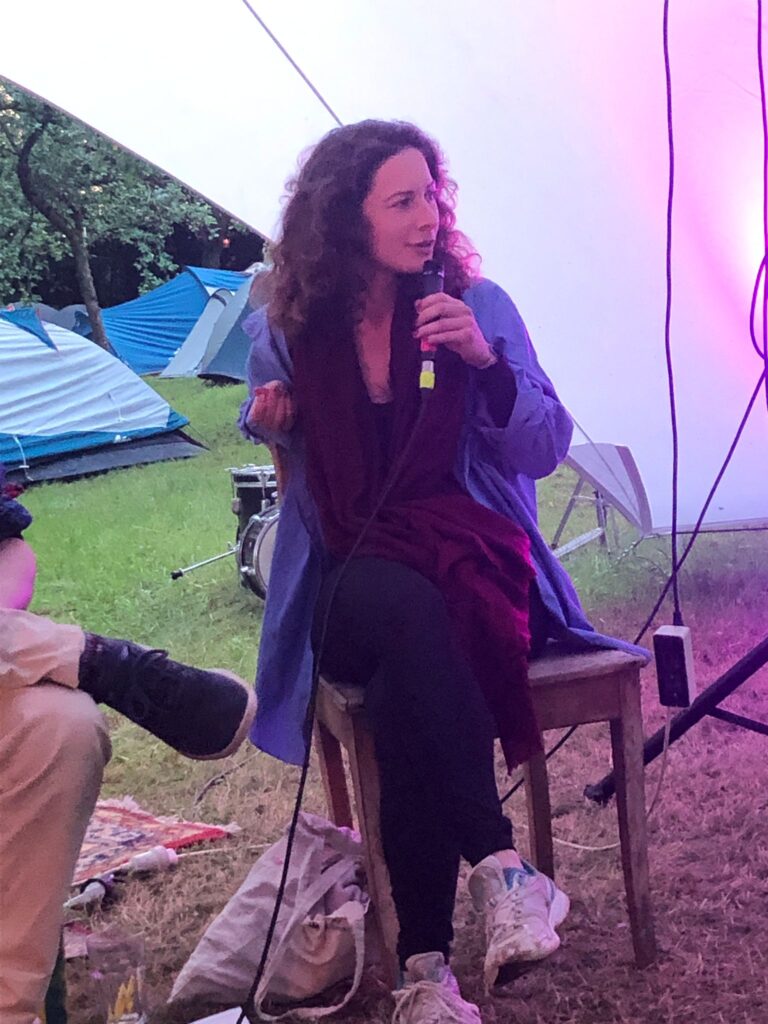
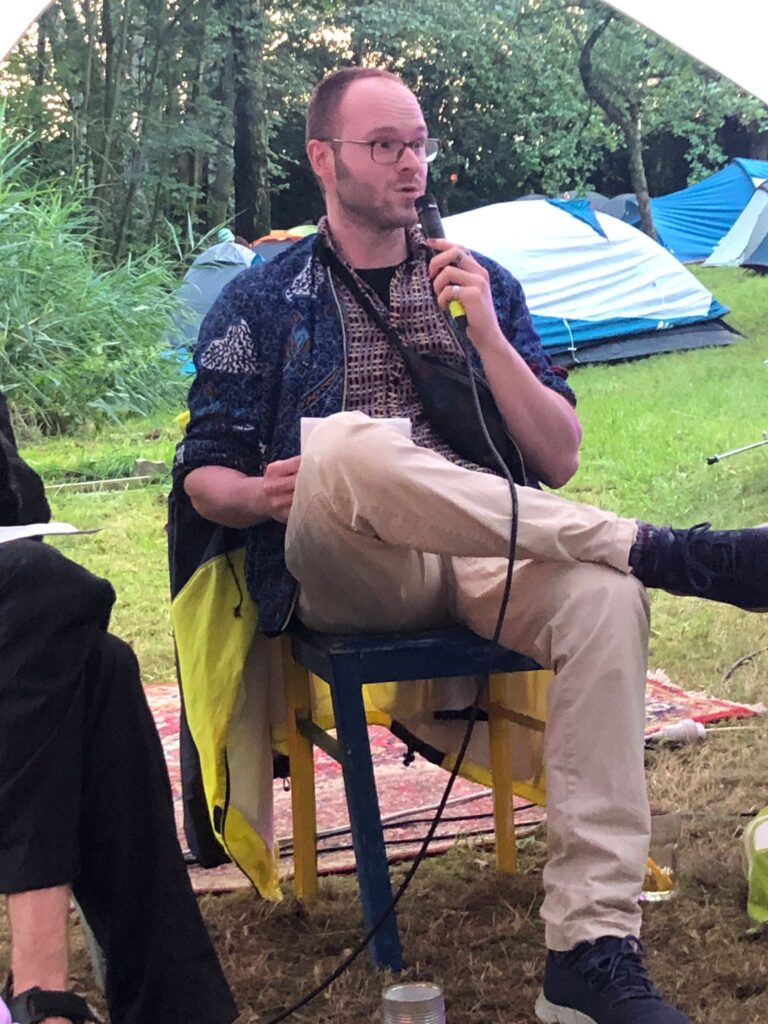
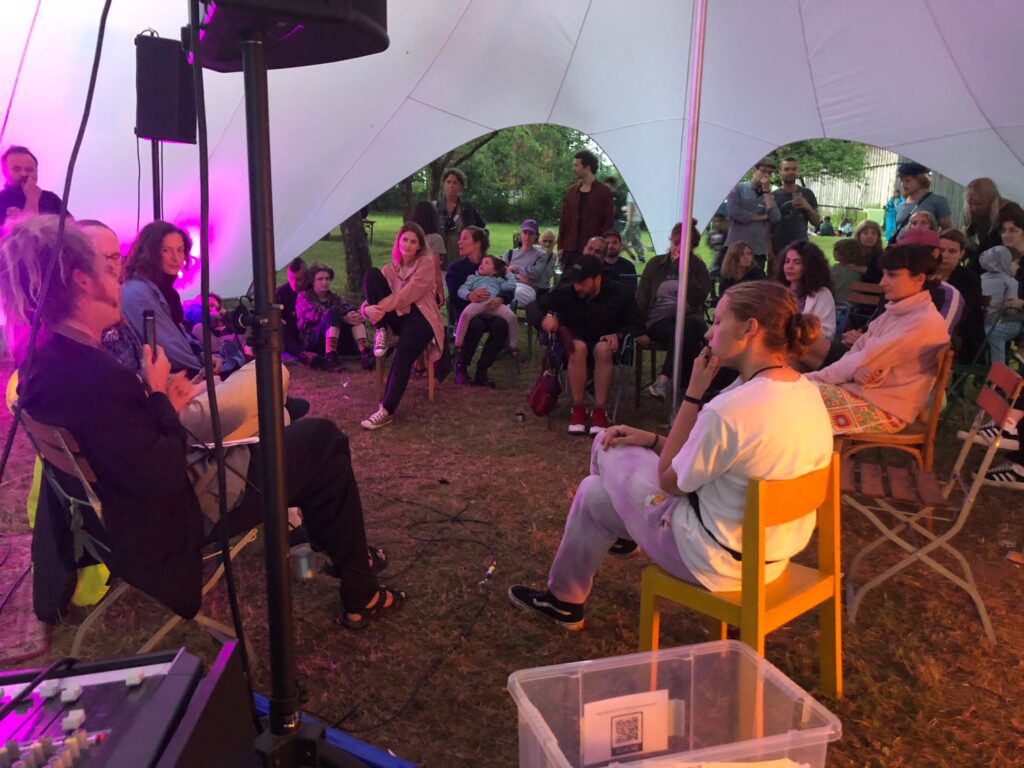
Set amidst the enchanting green fields and dense forests of the German Fichtelgebirge, the annual festival The Farm is a vibrant gathering of alternative minds, old friends and mind-blowing musical compositions. This year, alongside the rhythmic rock’n’roll of our hips to the pulsating beats of oriental tech house, PG* had the honor of adding a philosophical note to the event with an open discussion entitled ‘Are we serious? Humor in debates in the 21st Century!’.
Three of our members, Thérèse Gräff, Nico Graack and Marius Sitsch, prepared the ground for a fruitful exchange with the participants by presenting interesting ‘hot takes’ in short five-minute presentations.
Marius began by telling the story of how the philosopher Thales was laughed at by a Thracian slave girl for falling into a well, pointing out the power and freedom that laughter offers. He introduced the audience to the concept of laughter as a reaction to the absurdity of life and emphasised that bursting into laughter is a uniquely human characteristic. Or was that crying? He emphasised the close relationship between the two and suggested that they might even be one and the same.
Next, Nico offered a thought-provoking analysis of current US politics, questioning whether Trump’s use of memes about himself marks the end of subversive humor as a tool against the state or to empower the powerless. Contrary to Marius’ reasoning, he argues that this is the case, suggesting that when the state humors itself, it appropriates its own opposition: the use of humor as a form of counter-power presupposes seriousness on the part of power.
Finally, Thérèse enriched the discussion by analysing the power dynamics and vulnerability in humorous interactions. She suggested that genuinely laughing at oneself while also making fun of others is a form of vulnerability that contributes to respectful interaction. Combining the first two positions, she reasoned that this approach to humor allows for sensitivity and self-reflection and enables us to have fun without overwhelming others.
The three impulses were followed by a lively discussion with the participants: The question of humor as a form of protest was raised and discussed, as was the question of forgiveness and forgiving inappropriate laughter, and a sensitive approach to jokes was also a hot topic. The conclusion that stuck in our minds at the end was: Why do we take ourselves so seriously? Let’s loosen up, go dancing and make fun of our own seriousness from time to time.
The three impulses were published in German in Y – Zeitschrift für atopisches Denken and can be found here.
